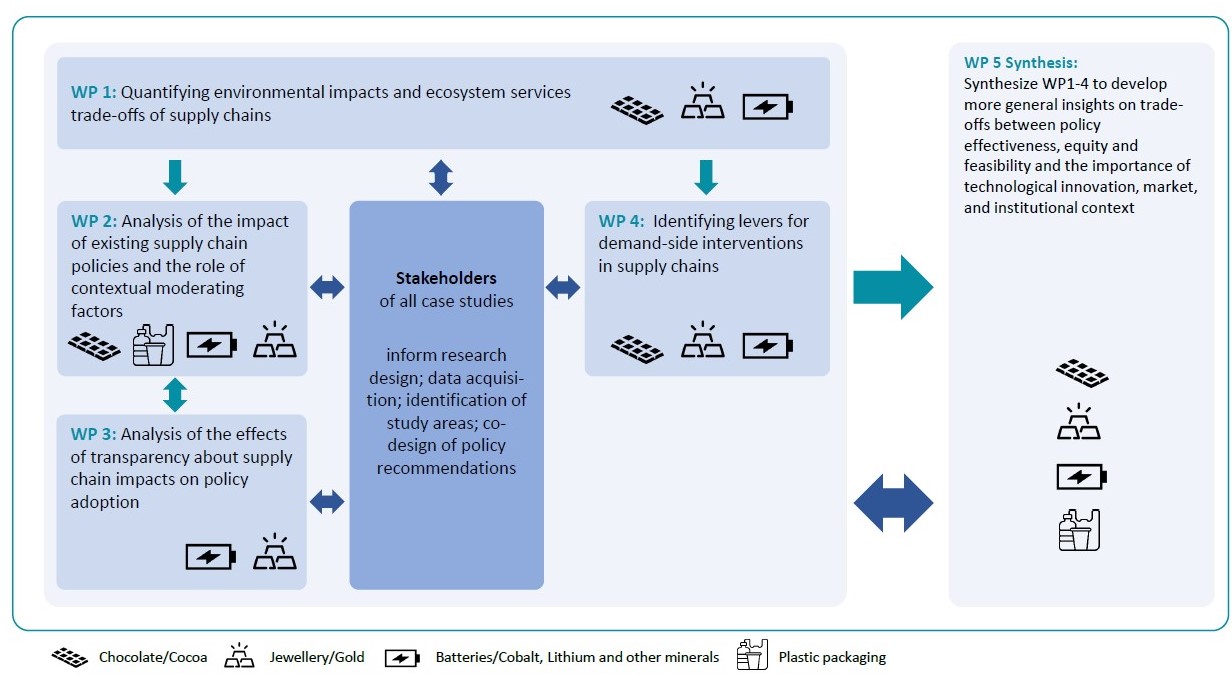Context
The unprecedented and destabilizing human alterations of the Earth’s surface are becoming increasingly intrusive. As the demand for goods and services provided by nature, such as food, minerals, and metals, has accelerated land use change, the supply of these goods and services often creates trade-offs. In particular, vulnerable but essential ecosystem services are put under pressure, such as viable wildlife habitats, clean water supply, and climate regulation. Adverse effects on human wellbeing are concomitant since the impacts deteriorate health conditions and social fabrics relevant to preserving human rights.
The environmental and social externalities associated with global material flows are particularly stark in the Global North, where consumption has grown steadily in the second half of the last century. In the context of ongoing trade liberalization, this growth in demand for material resources has led to an increasing dependency on imports from the Global South. The geographical expansion of supply chains has also enabled the growth and consolidation of multinational corporations. A relatively small number of companies control a majority of the world’s metal, mineral and food flows and therefore possess the ability to influence critical functions of the biosphere. This project will provide novel insights into where and how Swiss and European supply chains can be made more sustainable. Switzerland and Europe are at the forefront of several key commodities and many global supply chain initiatives. They can thus pave the way towards sustainable supply chains through innovative policy intervention.
Research objectives:
- Generate cutting-edge knowledge on determinants and context of sustainable supply chains in various commodity sectors;
- Provide recommendations for practitioners both in government and the private sector to improve the sustainability of Swiss and European supply chains of high current and future importance;
- Educate a next generation of experts in supply chain sustainability, by offering a comprehensive and multi-faceted skill set through the interdisciplinary supervision and profound methodological training of PhD students.
Objectives are divided into five work packages, as illustrated below:
Research Questions
WP1
- What are the land use and land use changes along international supply chains to intermediate and final consumers?
- What are the spatial ecosystem services and biodiversity impacts of international supply chains at the global scale and in the production regions?
WP2
- What is the impact of CSR initiatives of international mining and cacao sourcing companies on social outcomes in Africa?
- How effective and equitable are existing FSPs in the West African cocoa sector? How do market and capacity-building contexts moderate these impacts?
WP3
- To what extent and why do mining companies differ with respect to reporting information on social and environmental sustainability aspects of their operations?
- How have broader international agreements on transparency and CSR influenced company adoption of transparency initiatives (reporting, codes of conduct, and certifications)?
WP4
- What do consumers know about the working and environmental conditions of the producers of cacao and gold of the chocolate and jewellery they buy? How much do consumers care about the environmental and social externalities of cacao and gold sourcing?
- To what extent and at what cost can technological innovations reduce supply chain footprints? What are policy options to induce and accelerate such innovations?
WP5
- How do the effectiveness and equity outcomes of social and environmental supply chain policies compare within and between sectors?
